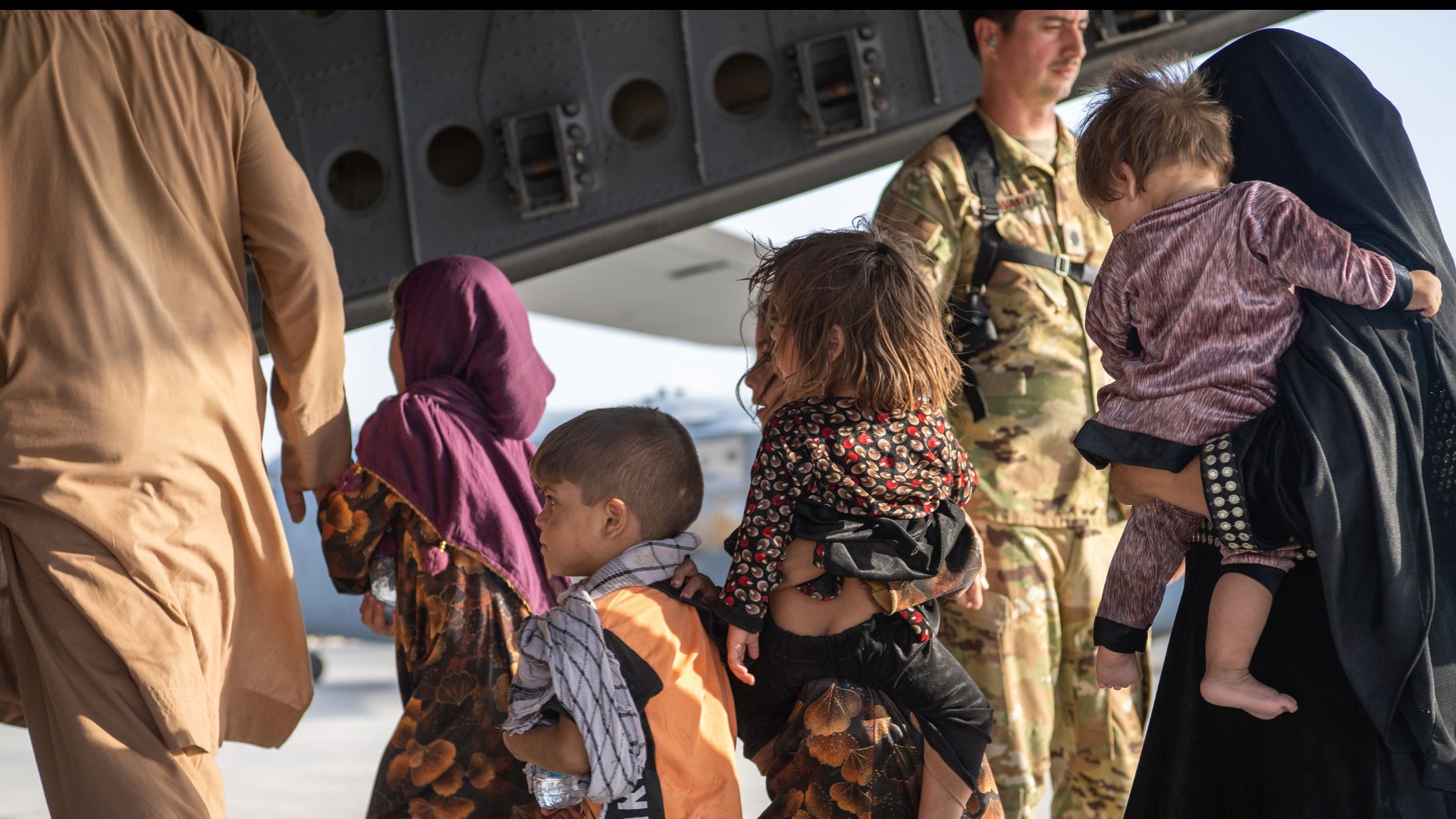MINNEAPOLIS — When the United States pulled out of Afghanistan in 2021, thousands of Afghan people were forced to scramble to safety by any means necessary.
Images of people desperately gripping U.S. Air Force planes, with no idea of where they were going, went viral.
Some of those people are still working to make a home for themselves in Minnesota.
“The winters are long here, but with all the resources available, they’re still good,” said Abdul Ilghar, speaking through a translator. He spent his career in Afghanistan as a journalist for Voice of America, never expecting he would flee his own county for the United States.
Ilghar worked with Minneapolis-based nonprofit Alight to find a new home, a job, and ultimately a new life for himself.
Although he was allowed to enter the United States, Ilghar, like most of the evacuees from Afghanistan, wasn’t given a pathway to citizenship or residency; instead, his family was offered a two-year-parolee status.
But now, those two years have passed.
"They're all at risk, if they go back their lives could be in danger," said Sonia Anunciacion, who is the Afghan program lead for Alight.
Anunciacion worries that without permanent legislation for the evacuees, they'll be forced to live in uncertainty.
But a piece of legislation called the Afghan Adjustment Act aims to solve that issue.
Immigration attorney David Kubat traveled to Washington D.C. earlier this year to lobby for the bill.
"(The Afghan Adjustment Act) provides a path for people who were evacuated from a certain date to a certain date, that were paroled into the United States to have a path to permanent residency," said Kubat.
The bill has bipartisan support, even being introduced in the legislature by Senators Amy Klobuchar and Lindsey Graham.
“If we don't do this, what message do we serve to the rest of the world for those people who would stand with our military in future conflicts?” asked Sen. Klobuchar. "If they do that, and they're not protected later they won't want to stand with us in the future. It goes way beyond the individual stories of the Afghans, it's about America's role in the world."
Minnesota National Guard General Dan Gabrielli led the guard's mission to welcome the evacuees to the U.S., where he and his unit spent weeks creating temporary housing and welcome programming for the Afghans.
"They earned the right to be here," he said.
Gabrielli is still in touch with some of the Afghans, who relayed to him they believe the adjustment act would solve their uncertain status in the county.
Despite the support for the Afghan Adjustment Act, the bill hasn’t made it to a vote, but supporters are optimistic it will be included in this year’s NDAA, or National Defense Authorization Act. The NDAA is currently in the Senate, where proponents like Klobuchar are working to include the adjustment act as an amendment.
According to a report from The Hill, passing the Afghan Adjustment Act is considered an "uphill battle."
In the meantime, the USCIS has moved to re-parole the evacuees, extending their temporary status for another two years.
Regardless of the uncertainty surrounding the Afghan Adjustment Act, evacuees like Ilghar are working to make the home of Minnesota Nice, a home for their families.
Watch more local news:
Watch the latest local news from the Twin Cities and across Minnesota in our YouTube playlist:

